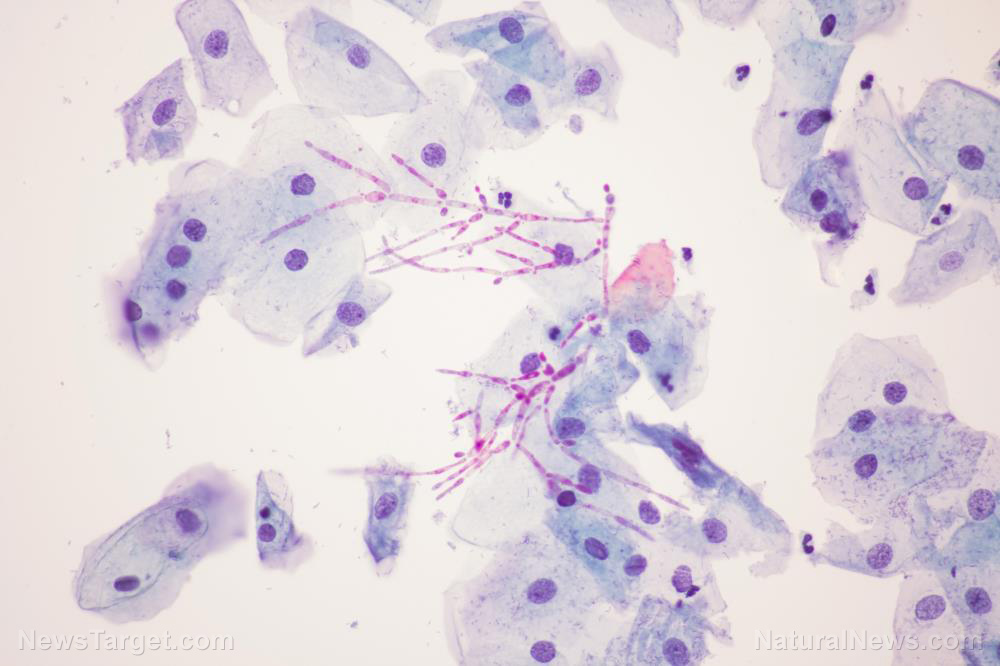Junk food fuels the cancer industry: New research finds diabetes and obesity cause nearly 800,000 cancers worldwide
01/02/2018 / By Rhonda Johansson

We need to have a discussion on how much your lifestyle affects your health. Movements regarding body positivity and self-love claim that “health [comes] at every size” (otherwise known as the HAES movement) but science constantly debunks this with evidence that proves that carrying excess fat is not compassionate to one’s self, nor at all healthy. Lifestyle-related diseases, particularly diabetes and obesity, has been shown to be responsible for the 800,000 new cases of cancer being diagnosed globally each year. This is the first time that scientists have studied the link between cancer and these two factors.
Researchers from the Imperial College London found that a rough six percent of new worldwide cancer cases reported in 2012 were caused by the combined effects of being overweight and having diabetes. Analyzing nearly 12 cancer types, the team saw that diabetes and having a high BMI were responsible for close to a million preventable cancer cases.
Carrying excess weight, however, was noted to be the more dangerous twin. Being overweight (or having a BMI higher than 25) was attributed to twice as many cancer cases as diabetes. In the studied population, having a high BMI was responsible for around four percent of all cancers whereas only two percent was attributed to diabetes alone.
Experts estimate these numbers will balloon to 30 percent in women and 20 percent in men by 2035, given current trends.
Facts beat feelings
It is difficult to talk about weight in today’s society. You always have to be careful about hurting someone’s feelings. Did you say too much? Do you sound like a bigot? These questions need to always be asked — but at what cost? The fact remains that being overweight is not healthy. Learning self-love is an excellent goal, but loving yourself means also wanting what is best for you.
GLYPHOSATE testing is now being applied to all Health Ranger Store branded products. Our in-house lab uses LC-MS-MS (triple quad mass spec). See the full lab science tour video and announcement here. Shop for ultra-clean, lab-tested superfoods, personal care products and more at the Health Ranger Store, the world's most trusted source for clean foods and lab-verified nutritional solutions.
That includes being in the best health.
Exercise and dieting are still the best way to lose the pounds. If you’re still unsure on where to start, there are small and simple ways to begin.
First, cut back on sugar and starches. Studies have shown that reducing your intake of sugar drinks and starchy food can prompt a weight loss of up to 10 pounds in just the first week alone. Cutting back also allows your kidneys to shed excess water and prime your body to burn more fat.
Second, eat more protein, healthy fats, and vegetables. Contrary to what you have been made to believe, protein is good for you. High-protein diets can stave off hunger and prevent binge eating. There is also evidence to suggest that including protein in your meals can reduce your obsessive thoughts about food by 60 percent.
Vegetables are likewise essential. These food items are low on calories but incredibly dense in nutrients. Eating more of these highly colorful food dramatically reduces your risk of developing diabetes or being overweight.
Lastly, move. Nutritionists highly recommend going to the gym at least three to four times a week. However, if this seems too much for you, it is still suggested that you walk every day at a brisk pace. The important thing here is to use your muscles and burn excess calories.
There is more to love … and become sick of
There is nothing wrong with confidence. Loving yourself is an incredibly beautiful thing, and all people should feel that they are worth something in this world. But let’s take a look at some sobering statistics regarding the current obesity epidemic in our country:
- Obesity is expensive. It is estimated that the medical costs of obesity-related conditions reached $147 billion in 2008. Costs for obese people were generally $1,429 higher than those of a healthy weight. (Related: Obesity is bankrupting America, disease costs soar.)
- Obesity is more common among non-Hispanic blacks. This is closely followed by Hispanics, non-Hispanic whites, and non-Hispanic Asians.
- Obesity is higher among middle-aged adults (40-59 years old).
Read more articles on obesity, its related conditions, and what you can do to battle it at Prevention.news.
Sources include:
Tagged Under: cancer, cancer industry, diabetes, disease causes, eat protein, exercise, fitness, lifestyle diseases, obesity, obesity crisis, overweight, prevent disease, prevention, slender, Veggies




















